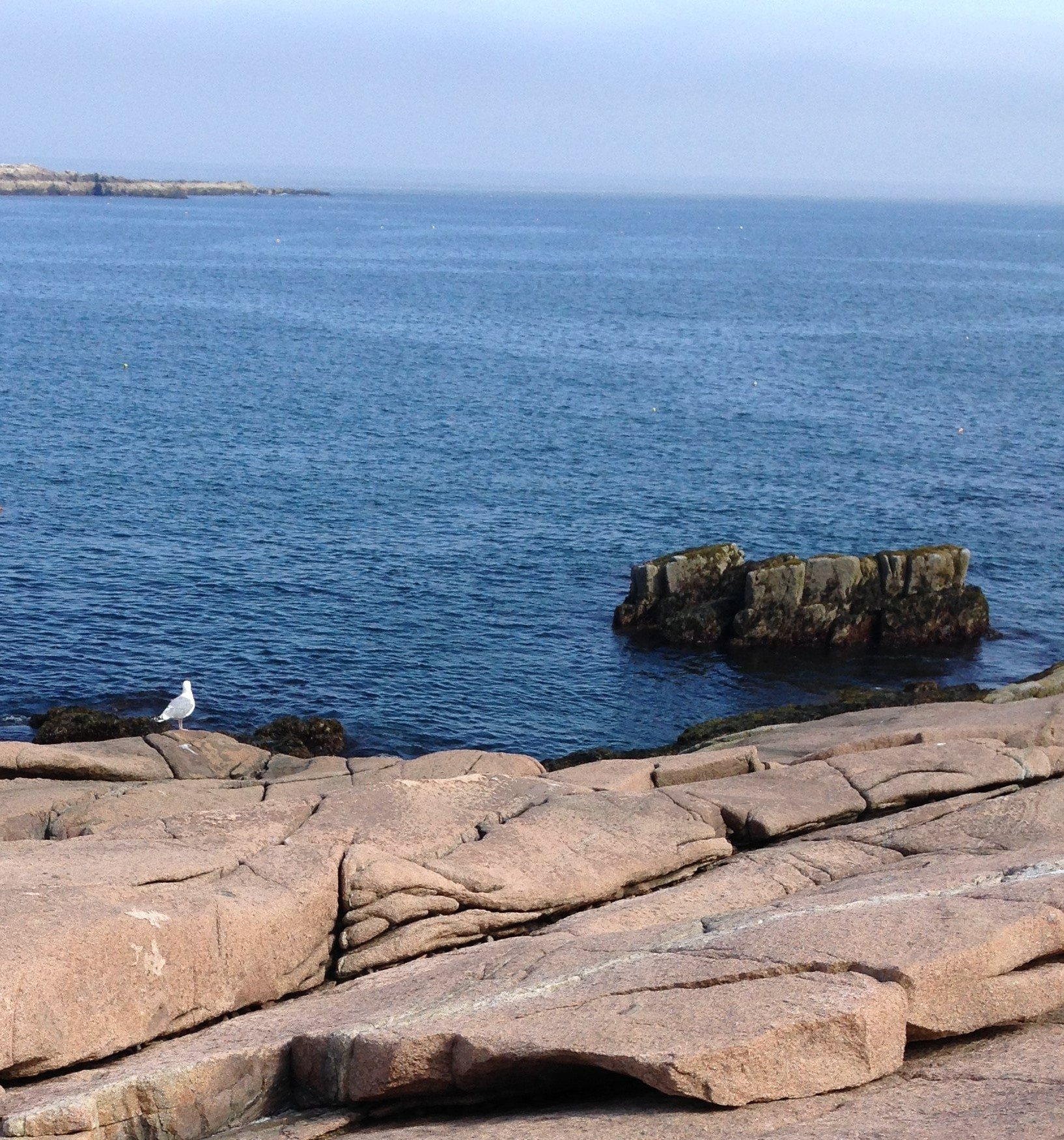Scripture: Job 38:1–18
Suzanne was right the whole time.
Back in the 1980’s and 90’s, lumber companies were at an impasse. They wanted to grow more lumber faster, but so many of their plantings were failing. They wanted to grow big stands of fir and spruce, so their assumption was that a field needed to be completely clear of competition before they could plant. Cut out the alder trees. Poison the birch trees. Remove all of what they called “weed” bushes and shrubs and trees, so that they can plant the more desirable trees.
But Suzanne Simard, who worked for and with these companies, thought that there was something missing. She saw the way that the forest grew, not in clean rows but in diversity and complexity. Instead of assuming that she knew the way that the forest should work, she studied the way that it did work. Ridiculed for her methods and her perspectives, she stayed focused on her research, and what she found was fascinating.
Instead of causing competition, alders and birches cooperated with the firs and spruces and pines. The very trees that were being cleared in the name of competition were required to help the more desirable trees to grow. These “junk” trees or “weed” trees were actually the ones that nurtured and fed nutrients to the saplings of other trees. Furthermore, she found that the fungi that attached itself to the roots of these trees—that the forestry experts thought were harmful—actually made it possible for the trees to process those nutrients and grow stronger and taller! One species cared for another, nurturing and “mothering” it until it was able to grow.
Dr. Simard tells her story in the book Finding the Mother Tree, which we read a couple of months ago in the Earthworks Purple Group. It is a fascinating story of how we often come in with our assumptions about the way things should work, instead of actually listening and watching the way things do work. Dr. Simard listened to nature, did the science, conducted the research, and her work has changed the way we understand trees.
Suzanne was right the whole time.
It is a helpful parallel to what we read in the 38th Chapter of Job. First a reminder of how we got there. The first couple of chapters is all narrative, describing all these horrible things that happen to Job, despite the fact that he is by all accounts a good and upright man. And then the speeches begin.
Job’s friends transition from what was probably the most helpful thing they could have done—sit beside their friend and not say anything for several days—to the least helpful thing they could have done—throw out oversimplified theology and trite clichés and basically blame the victim for some 35 chapters. One of them throws out a bunch of self-righteous theology, and then Job responds. Then another re-packages the same stuff, and then Job responds. Back and forth for several cycles. If there is anything that all of these speeches have in common, it is that they seem to come from a place of hubris. (Like the lumber company experts!) Everyone thinks they know the right answers. Bildad. Jophar. Eliphaz. Elihu. Job.
Then finally, in chapter 38, the one who actually does have the right answers speaks up. How often does God do this in Scripture? Two people are over here arguing…one says “the answer is A” and another says “the answer is B,” but then God shows up and says, “actually, the answer is C.” Or “W.” Or “72.” You aren’t even arguing about the right terms! Jesus did this all the time. And God does this here in Job.
The friends spout one theological answer. And Job retorts with another theological answer. And then God shows up and says, “actually, the answer is…ostrich.” And leviathan. And behemoth. And snow. And ocean. God responds with these examples from creation that reveals that Job and his friends aren’t even arguing about the right thing. In short, they are offering these simple and trite clichés, and God responds with complexity. And majesty. And intricacy. And mystery. “Where were you when the earth was created and the foundations of creation were formed?”
Scholar Steven Chase puts it this way: “The immediate answer to all YHWH’s questions is simply: YHWH. The implicit answer (which does in an unstated way address some of Job’s questions) is that there is moral order to the universe, but it is beyond human understanding, and it can be accessed, but not changed, by faith….in the course of the dialogues Job’s questions are transformed and he is illumined by awe and beauty rather than reason and cognition.”
Job tells us that God’s answer comes out of the whirlwind. God speaks through the tumbling and upside-down grief and chaos of his life. And God speaks order. And clarity. And purpose. “If I take care of every wave on the beach, and every goofy bird that can’t even fly, don’t you think that I am taking care of you?” God’s answer isn’t evasive or a distraction from the hard questions that Job is asking, but instead of answering them, God gives Job new perspective.
And in our reading, God gives us new perspective, as well. What do we do with these speeches from God at the end of Job? What might we learn? I suggest two things.
The first is humility. This seems to be the primary point of God’s speech to Job. Job had spent several chapters explaining to God how God needed to get his act together. “Don’t you see, God, how badly you have messed up in my life and my world? If you knew how things were supposed to be, this bad stuff wouldn’t be happening to me.” But God doesn’t even dignify Job’s demands with a direct answer, but instead tells him about sea animals and ostriches and the “storehouses of snow.” God uses creation as evidence that we don’t really know as much as we think we know. Creation is an opportunity to realize how little we understand. In other words, it is an appeal for Job to take a breath and know that there is a lot that he doesn’t know. For him to express a little humility. Interestingly, God does not tell Job that his prayer is wrong, or even that his anger or complaint is wrong. God doesn’t seem to be correcting his words or his actions, but providing a reality check about his heart. As he prays to God, he should pray with a humble heart.
I don’t know about you, but I can relate. For me, God’s creation is a place where I often find myself humbled. The more I understand about trees transferring nutrients to each other, or mycorrhizal fungi beneath the soil, the more humbled I am at the intricacy of God’s creation. Or when I gaze upon a sky filled with the Milky Way, or a canyon deeper than I could walk in a day, or mountains that stretch 14,000 feet above sea level, the more humbled I am at the majesty of God’s creation. Like Job 38, God’s creation is so often an opportunity for me to see my own smallness. My own insignificance. My relative weakness. It reminds me of how much I do not know.
Which leads me to the second point from Job. How might we respond to our own smallness? Despair? Worthlessness? Hopelessness? I don’t think that is what Job is saying. Instead, I would hope that it turns our hearts to worship. I would hope that our smallness corresponds to the awakening to God’s bigness. I feel like worship is the companion response to humility. As we see how small we are, we can celebrate how big God is! We can rejoice in the fact that the God of the mountain and the canyon and the sky full of stars, also cares about you and me. Demonstrates love by way of the tiny mycorrhizal filaments beneath the earth, and every single hair on our heads. God’s creation opens our eyes to God’s deep and abiding love, and our natural response is to proclaim gratitude and wonder. Even if we don’t understand it all intellectually. In other words, as we deepen our awareness that we are not at the center of the universe, we likewise grow in the truth that a good and loving God is. And that is the heart of worship.
Job says as much as he responds to God a couple of chapters later: “Then Job answered the Lord: ‘I know that you can do all things, and that no purpose of yours can be thwarted…I had heard of you by the hearing of the ear, but now my eye sees you.”
Led by a heart of humility, Job responds with a proclamation of worship.
Today is ocean Sunday in the season of creation liturgy. I feel like a bit of a fraud talking about oceans, because I am not a beach guy. For years, I would hear people talk in reverent and glorious tones about beaches in Florida or Myrtle Beach in South Carolina or cruises to some island paradise and all I heard people say was “20-hour drive, crowded, hot, sunburn, price-gouging tourist trap, vacuuming sand out of my car until Christmas.” But eventually, I realized that I may not love beaches, but I can understand the love of the ocean. For there, I see the majesty of God.
Jumping into the ocean after a long run on the boardwalk on the mid-Atlantic, watching the sun rise between the sea and the sky.

Listening to the waves break on the rocks in Maine, creating loud crashes and quiet tidal pools of intimate beauty.

Feeling the cool rush of the north Pacific breezes, in Washington or Oregon or northern California, watching sea lions play and swim.

Watching the sun sink between the haystacks, into the oranges and purples between the sea and the horizon.

The ocean creates an opportunity for worship, to catch a glimpse of the immensity of God’s glory. It teaches me how to be humble. It teaches me how to worship.
Leave a Reply